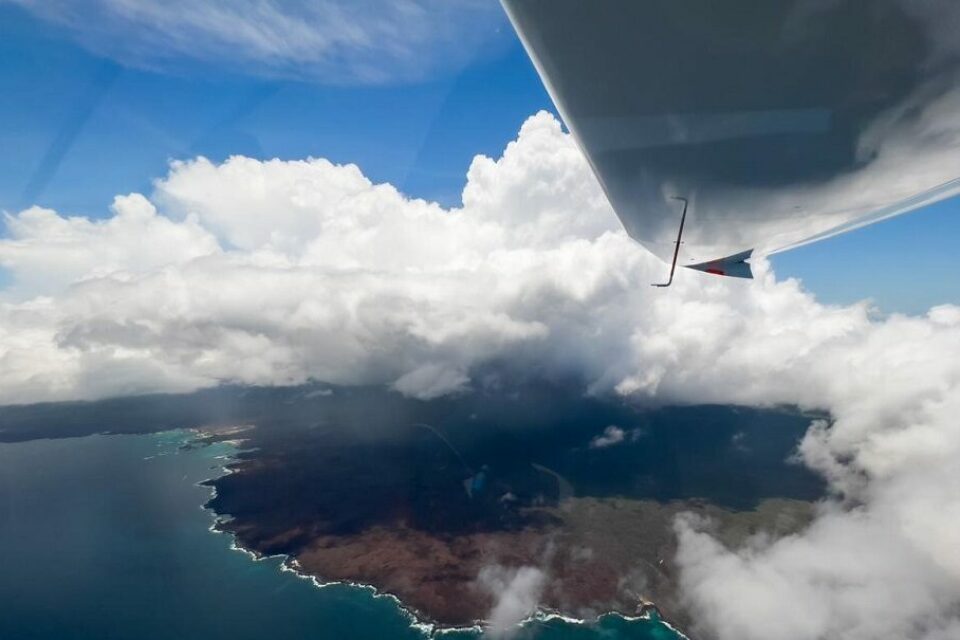
World Oceans Day 2022: Tagging Ocean Giants
World Oceans Day is held on 8 June every year to raise awareness of the vital importance of our oceans and their role in sustaining a healthy planet. By raising funds and awareness, Galapagos Conservation Trust is able to support and deliver projects in Galapagos and respond to key threats facing the Islands' critically endangered marine wildlife.
World Oceans Day is a global celebration that looks to bring people and organisations together across the world in a series of events highlighting how we can all help protect and conserve our oceans.
Endangered Sharks of Galapagos Programme
This is a critical time for sharks globally. They are facing increasing pressures from industrial fishing, habitat loss and plastic pollution. By raising funds and awareness, we are able to support and deliver projects in Galapagos and respond to key threats facing the Islands’ marine wildlife.
Many of the sharks found in Galapagos are migratory. Once they swim outside of protected waters, they are at great risk from industrial fishing. Our Endangered Sharks of Galapagos project, set up in 2017, supports research that will ensure better protection for them within and outside of the Galapagos Marine Reserve.
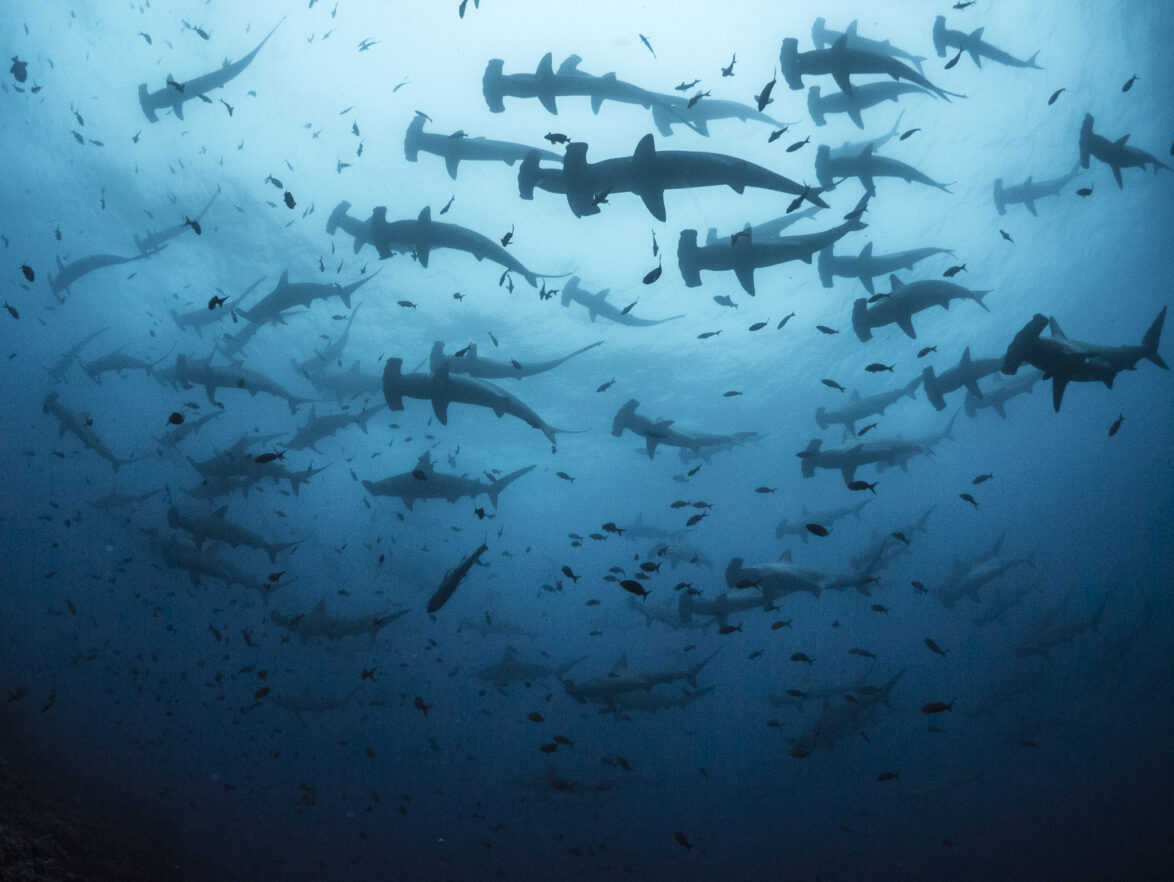
Monitoring the movements of the elusive whale shark
In April 2022, Galapagos Conservation Trust supported a ground-breaking research expedition to tag and track several key migratory marine species in the Galapagos Marine Reserve
Working onboard a local fishing boat, a team of expert scientists placed satellite tags on scalloped hammerhead and blue sharks, and yellowfin tuna, as part of a larger study to establish their movement patterns and the role of marine protected areas in their conservation.
However, the main target of the trip was to tag and track elusive endangered whale sharks to get a better idea of their full migratory loop. As it is hard to spot even these large creatures in huge areas of ocean, Julio Vizuete, from ‘Ecuador Bajo Mis Alas’ (Ecuador Under My Wings), used his ultralight airplane to search for whale sharks around the islands and seamounts. Once whale sharks were spotted, he radioed the scientists on the boat.
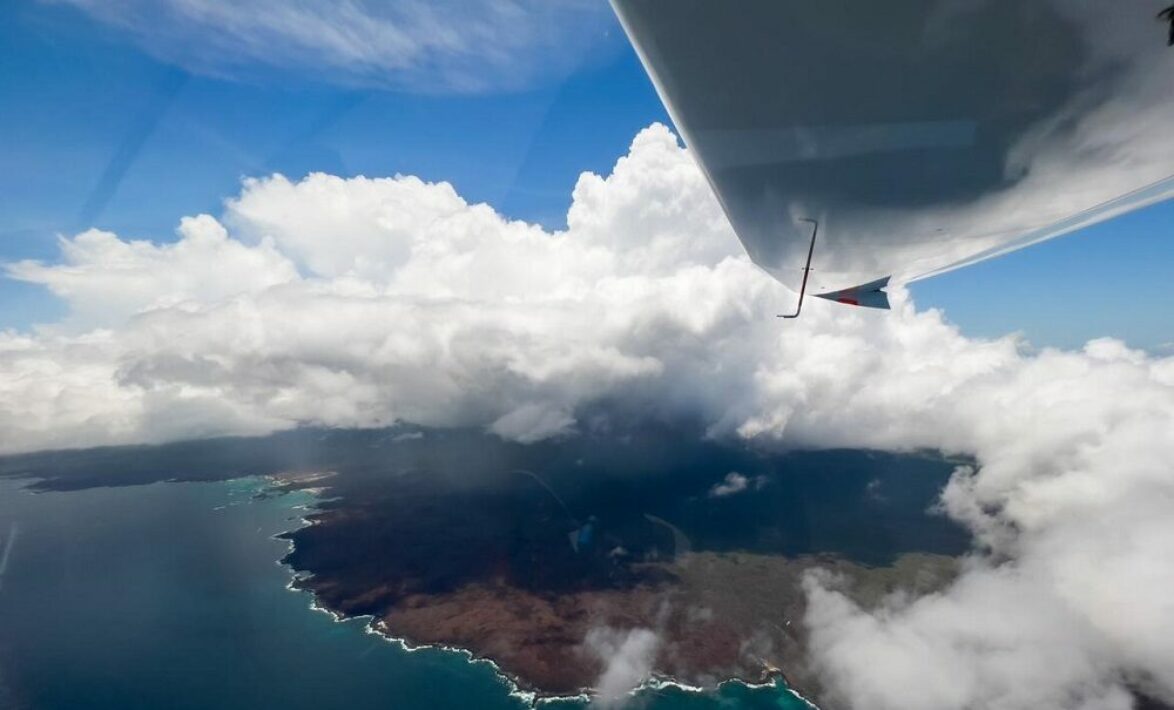
With Julio’s help, the team encountered ten whale sharks and were able to place five satellite tags, all on large females. It was an amazing success! The plan now is to carry out more expeditions using aerial searches, around Galapagos and along the coastal waters off mainland Ecuador to find and tag more whale sharks and other large marine species, to get the vital information needed to protect them from extinction.
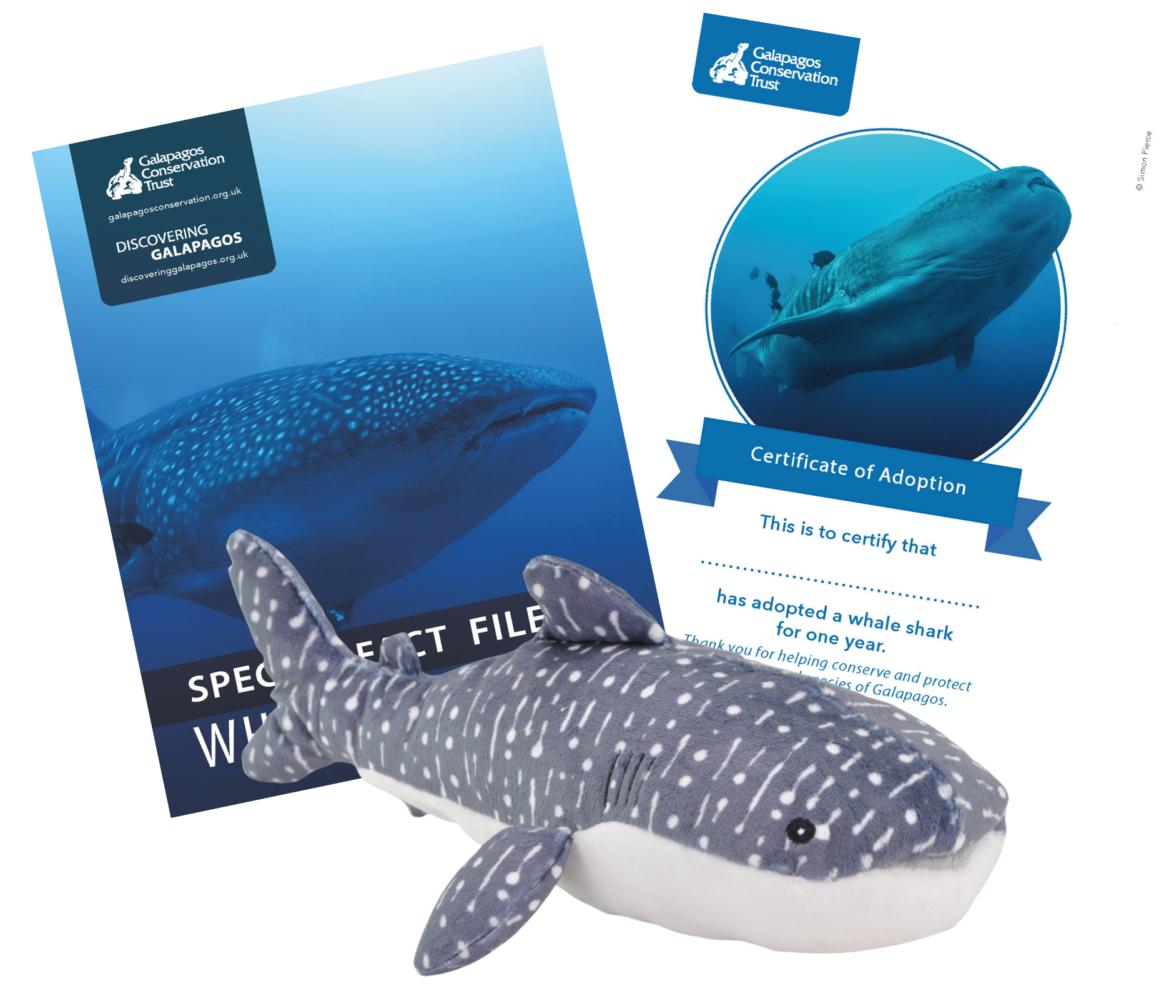
Adopt a whale shark
Postal adoption pack includes: A fact file and a personalised certificate printed on 100% recycled paper, plus a soft toy.
Discovering new threats
Understanding the movements of sharks is important to protect them from threats such as industrial fishing. Marine biologists from the Marine Biological Association (MBA) and the University of Southampton have recently published a new research article in the Proceedings of the National Academy of Sciences (PNAS) journal, which suggests that industrial shipping may be leading to a large number of whale shark deaths across the world.
Whale shark numbers have been declining in recent years in many locations, but it is not entirely clear why this is happening. As whale sharks spend a large amount of time near the surface and gather in coastal regions, experts think that collisions with large ships could be causing many whale shark deaths.
Through their research, the team revealed that over 90% of whale shark movements crossed shipping activity.
The study also showed that signals from the satellite tags placed on whale sharks are frequently ending abruptly when the whale sharks are in busy shipping lanes. The team concluded this is likely due to whale sharks being struck, killed and sinking to the ocean floor.
At present there are no international regulations to protect whale sharks against ship collisions. The beautiful whale shark faces an uncertain future if action is not taken soon. We hope the findings can inform management decisions and help prevent a further decline in whale shark numbers.
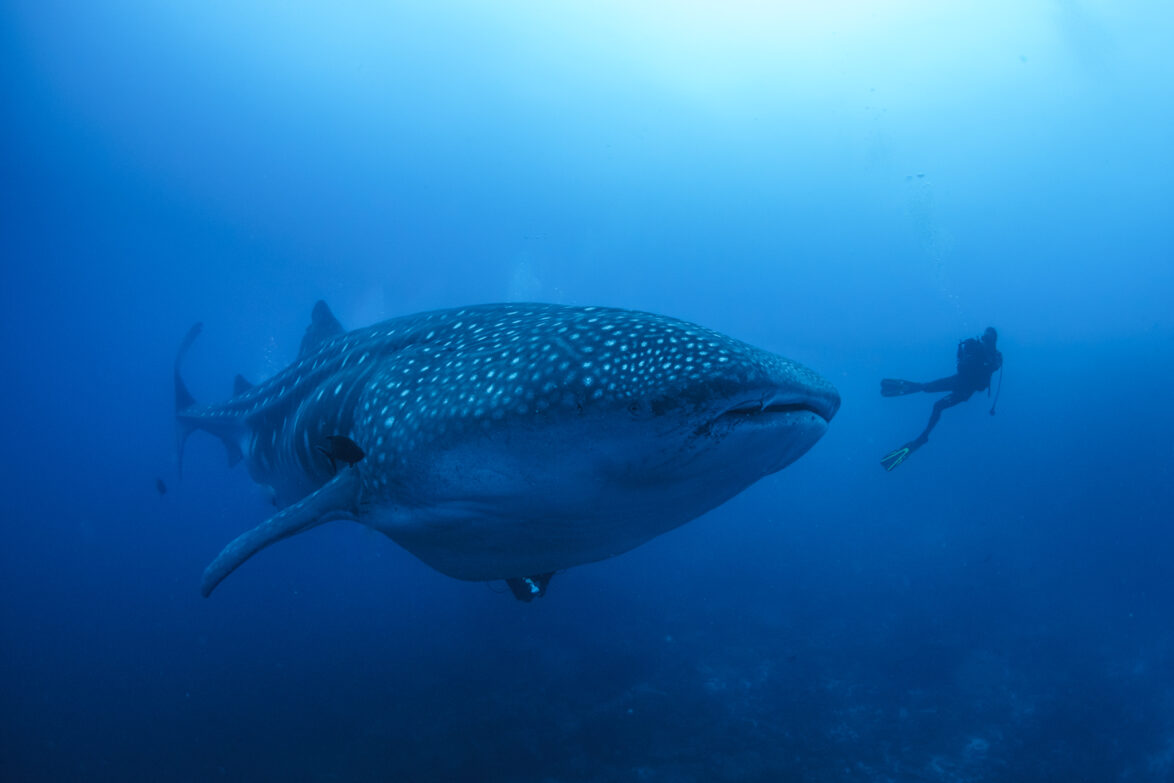
> 90 %
of whale shark movements overlapped with shipping activity
How you can help
Ways to support our conservation work in Galapagos include becoming a member, donating to an appeal, adopting an animal, attending an event, volunteering or entering our photography competition.
Related articles
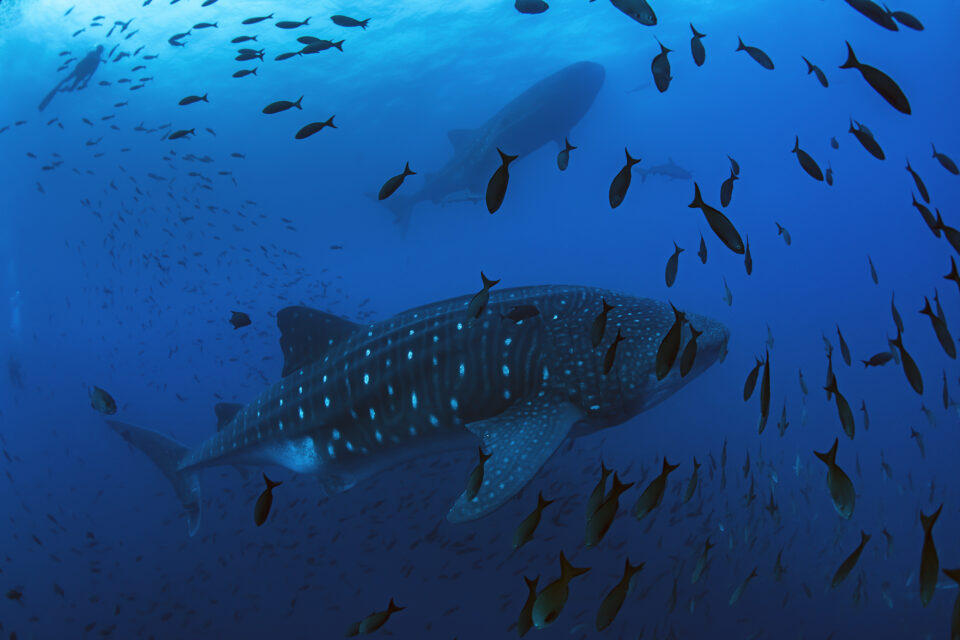
Ocean Protection Webinar 2023

Tagging a new constellation of whale sharks
